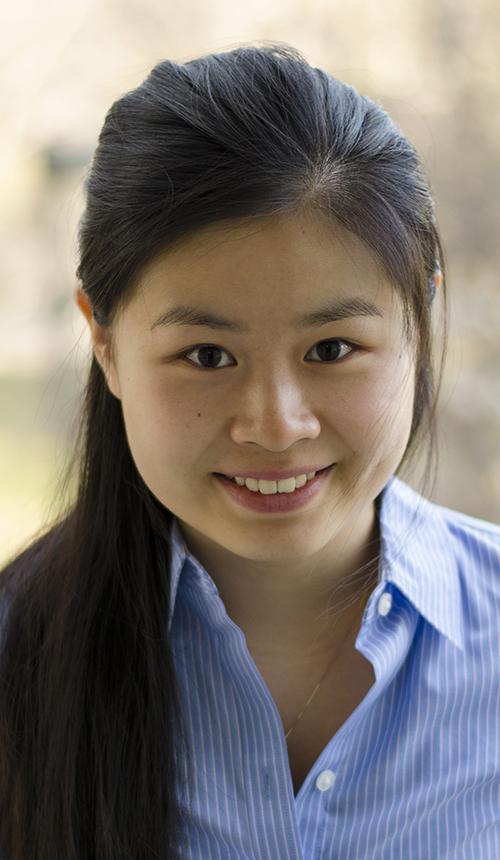Xiaoyu Li
March 24, 2014
Year: Second
Major: Biomedical Engineering
Hometown: Peoria, Ill.
What is your biggest goal for USG in the 2014-2015 Academic Year?
In the 2014-2015 Academic Year, my biggest goal for USG internally is to develop representatives who are comfortable and capable of pursuing independent initiatives, as the General Assembly is the powerhouse of USG. Within Academic Affairs specifically, my aim is to improve the overall transparency of the university’s academic policies.
Other campus positions outside of USG:
Director of Community Service – Case for Sight, Horizons mentor, Alpha Chi Omega
Prior USG experience / initiatives undertaken
VP of Academic Affairs (2013-2014), First Year Representative (2012-2013), student representative on Academic Standing subcommittee of Faculty Senate. Initiatives include faculty senate student representative reporting system, accessibility of grades, transparency of academic policies, length of drop/add period, senior residency requirement, improvements to biology laboratory courses.
What is the biggest issue you see your position having to face? How do you specifically plan on tackling it?
The biggest issue that I see for the position of VP of Academic Affairs would be to change the atmosphere of the committee. Traditionally, initiatives that Academic Affairs take on are seen as more long-term and slow-moving, and I plan to combat this passiveness by also focusing on smaller changes that are “band-aids” for the problem, along with the overarching goal.
What are your views on the role of the SAGES program in a CWRU education? What challenges does the program face with growing class sizes?
SAGES was established as a way to emphasize the importance of communication in a CWRU education, and I think that it provides the invaluable experience of being in a discussion-based seminar class, especially during your first or second year when most of your classes have an overwhelming number of students. I do, however, wish that the purpose of SAGES was better communicated to both professors and students, so that both parties would know what they are responsible for and what they should be getting out of their experience. With the growing class sizes, the program needs to ensure that there are enough classes offered in each of the three SAGES thematic groups so that the class sizes can remain small while allowing ample choice for students to pursue their interests. Consequently, with an increasing number of classes comes the issue of consistency between the classes, which is an issue that Academic Affairs has been working on this past year.
What role should Mediavision play in learning? Would you like to see a more widespread use of it?
Mediavision is a very convenient resource for learning, especially to review material after a particularly confusing or fast-paced lecture. Although some students choose to skip class because Mediavision is offered, I think that is a personal choice and should not affect the availability of the service. I would love to see more widespread use of it.


